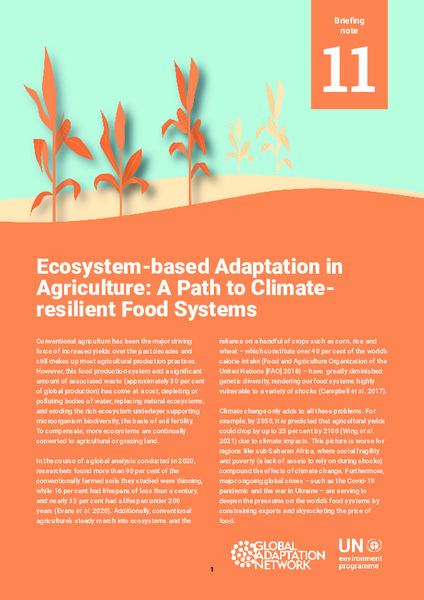Ecosystem-based Adaptation in Agriculture - Briefing Note 11

Date
2022-07Author
United Nations Environment Programme
Citation Tool
Bibliographic Managers
RT Generic T1 Ecosystem-based Adaptation in Agriculture - Briefing Note 11 A1 United Nations Environment Programme YR 2022-07 LK https://wedocs.unep.org/20.500.11822/40405 PB AB TY - GEN T1 - Ecosystem-based Adaptation in Agriculture - Briefing Note 11 AU - United Nations Environment Programme Y1 - 2022-07 UR - https://wedocs.unep.org/20.500.11822/40405 PB - AB - @misc{20.500.11822_40405 author = {United Nations Environment Programme}, title = {Ecosystem-based Adaptation in Agriculture - Briefing Note 11}, year = {2022-07}, abstract = {}, url = {https://wedocs.unep.org/20.500.11822/40405} } @misc{20.500.11822_40405 author = {United Nations Environment Programme}, title = {Ecosystem-based Adaptation in Agriculture - Briefing Note 11}, year = {2022-07}, abstract = {}, url = {https://wedocs.unep.org/20.500.11822/40405} } TY - GEN T1 - Ecosystem-based Adaptation in Agriculture - Briefing Note 11 AU - United Nations Environment Programme UR - https://wedocs.unep.org/20.500.11822/40405 PB - AB -Item Statistics
Display item statisticsMetadata
Show full item recordDescription
Conventional agriculture has been the major driving force of increased yields over the past decades and still makes up most agricultural production practices. However, this food production system and a significant amount of associated waste (approximately 30 percent of global production, according to FAO no date) has come at a cost, depleting or polluting bodies of water, replacing natural ecosystems, and eroding the rich ecosystem underlayer supporting microorganism biodiversity, the basis of soil fertility. To compensate, more ecosystems are continually converted to agricultural or grazing land.
Collections
Document Viewer
To read more, scroll down below.

